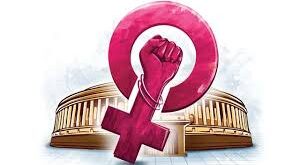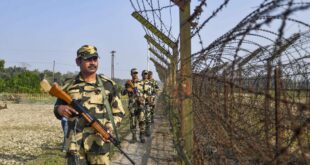- Recently, the Prime Minister of India (PM) addressed the plenary session of the 6th Eastern Economic Forum (EEF) via video-conferencing.
- The PM highlighted the importance of India-Russia relations and potential areas of cooperation in line with the ‘Special and Privileged Strategic Partnership’.
Important points:
- Applauded Russia’s vision for the development of the Russian Far East region and reiterated India’s commitment (as part of its “Act East Policy”) of being a reliable partner of Russia in this regard.
- Highlighted the significance of health and pharma sectors as important areas of cooperation that have emerged during the pandemic.
- Referred to other potential areas of economic cooperation including diamond, coking coal, steel, timber etc.
Eastern Economic Forum:
- EEF was established by the decree of the President of the Russian Federation in the year 2015.
- It takes place each year in Vladivostok, a city in Russia.
- It serves as a platform for the discussion of key issues in the world economy, regional integration, and the development of new industrial and technological sectors, as well as of the global challenges facing Russia and other nations.
- The Forum’s business programme includes a number of business dialogues with leading partner countries in the Asia-Pacific region, and with ASEAN, a key integration organization of dynamically developing nations in Southeast Asia.
- Over the years, it has emerged as an international platform for discussing the strategy for developing political, economic and cultural ties between Russia and Asia Pacific.
India-Russia Relations:
- The Chinese aggression in the border areas of eastern Ladakh, brought India-China relations to an inflection point, but also demonstrated that Russia is capable of contributing to defusing tensions with China.
- Russia organized a trilateral meeting among the foreign ministers of Russia, India, and China following deadly clashes in the Galwan Valley in the disputed territory of Ladakh.
- Emerging New Sectors of Economic Engagement: Apart from traditional areas of cooperation such as weapons, hydrocarbons, nuclear energy (Kudankulam), space (Gaganyaan) and diamonds, new sectors of economic engagement are likely to emerge — mining, agro-industrial, and high technology, including robotics, nanotech, and biotech.
- India’s footprint in the Russian Far East and in the Arctic is set to expand. Connectivity projects may get a boost too.
- Russia seeks to leverage India’s soft power to gain legitimacy in the success of the Eurasian Economic Union, and re-establishing its hegemony, as it existed during the cold war era.
- India and Russia are working to close the gap on Afghanistan and are calling for early finalization of the Comprehensive Convention on International Terrorism.
- Additionally, Russia supports India’s candidacy for permanent membership of a reformed United Nations Security Council and of the Nuclear Suppliers Group.
- Russia has been a long-time friend of India; it not only provided India arms to maintain a formidable military profile but also gave invaluable diplomatic support on a variety of regional issues.
- Although India has consciously diversified its new defence purchases from other countries, the bulk of its defence equipment (60 to 70%) is still from Russia.
SOURCE: THE HINDU,THE ECONOMIC TIMES,MINT
 Chinmaya IAS Academy – Current Affairs Chinmaya IAS Academy – Current Affairs
Chinmaya IAS Academy – Current Affairs Chinmaya IAS Academy – Current Affairs



